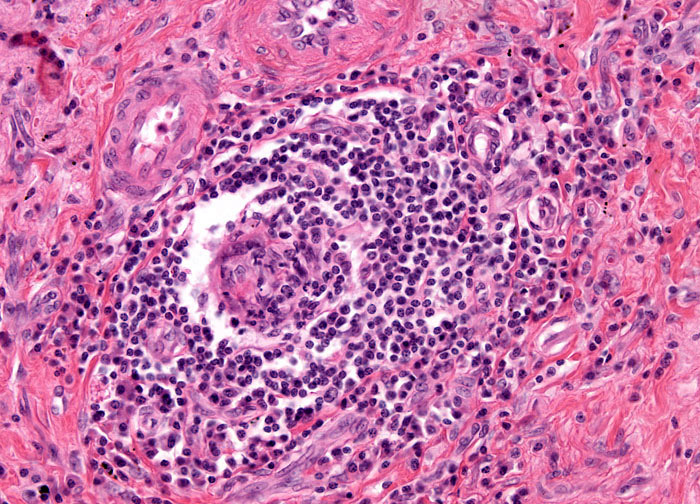
Sarcoidosis at 20x Magnification
Sarcoidosis is a disease that most commonly affects the lungs and is characterized by the inflammation of tissues resulting in the formation of the small aggregations of cells known as granulomas. In addition to its most customary pulmonary form, sarcoidosis may affect the skin, eyes, lymph nodes, muscles, liver, and most any other tissue in the body. The onset of the disease may be gradual or sudden, and it usually disappears on its own, though this process can take years. In some individuals, the disease comes and goes spontaneously throughout life. Many people with sarcoidosis, however, do not display any palpable symptoms, and diagnosis is only incidental. In others, symptoms may include shortness of breath, chronic cough, skin rash, and swelling of the eyes, depending upon which region of the body is experiencing the inflammation.













